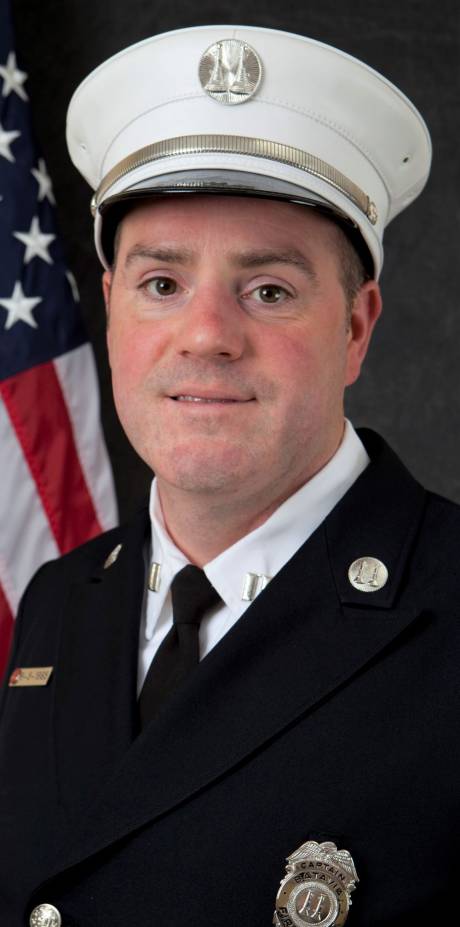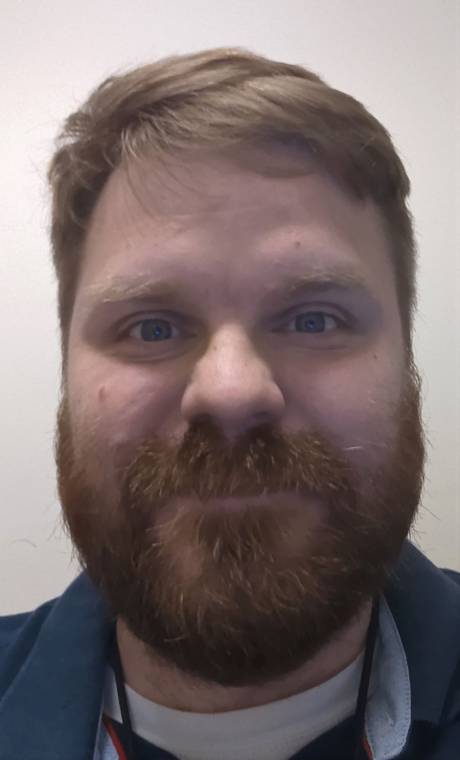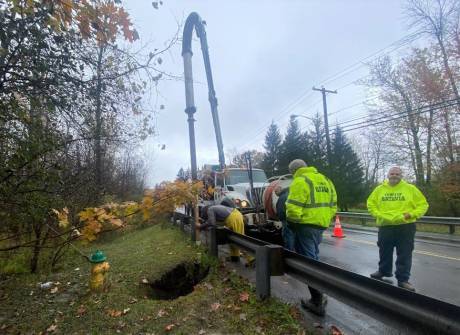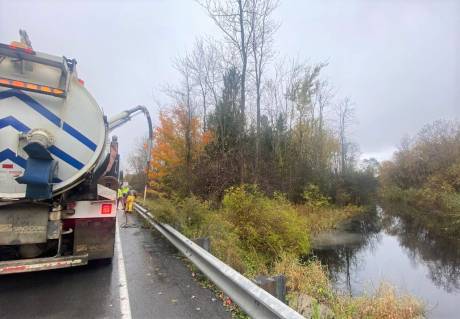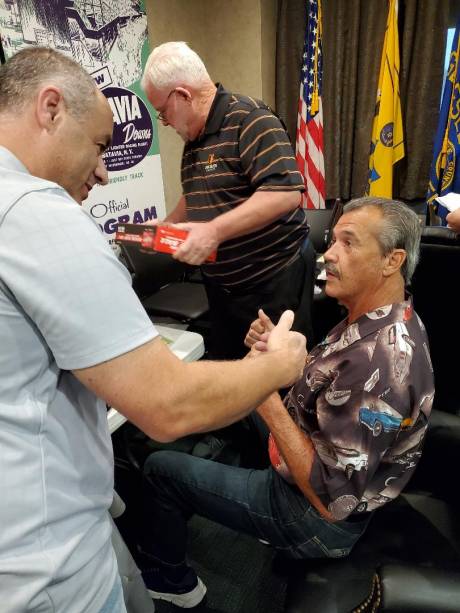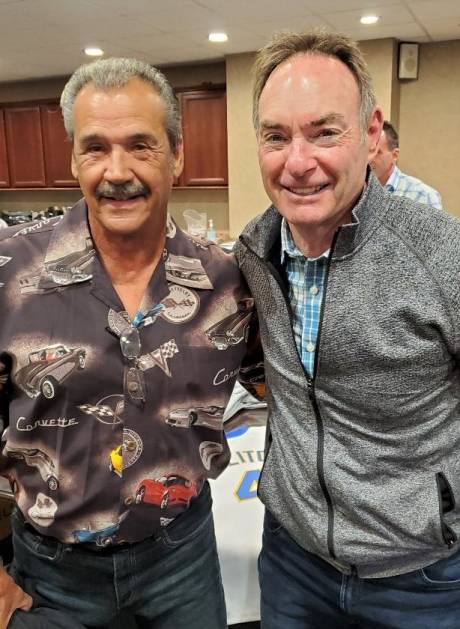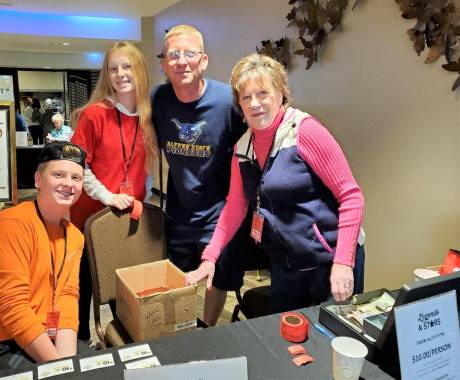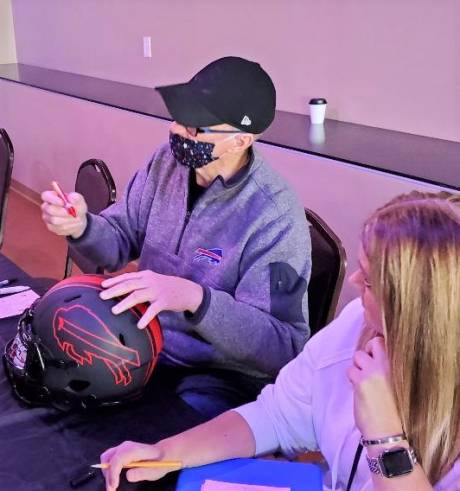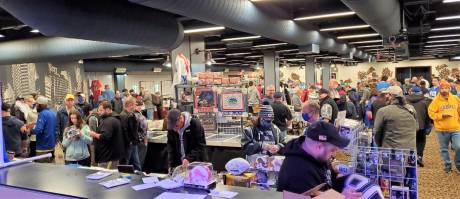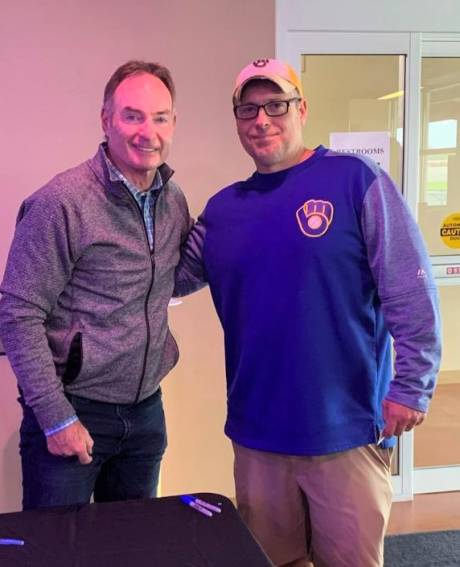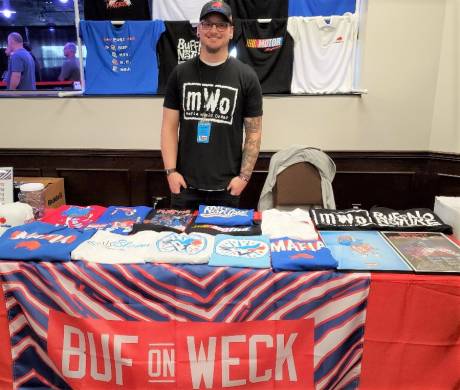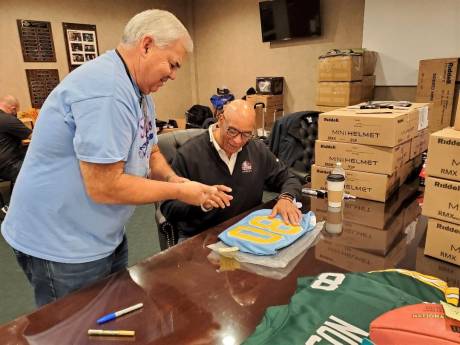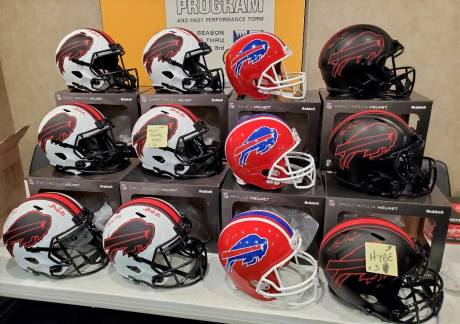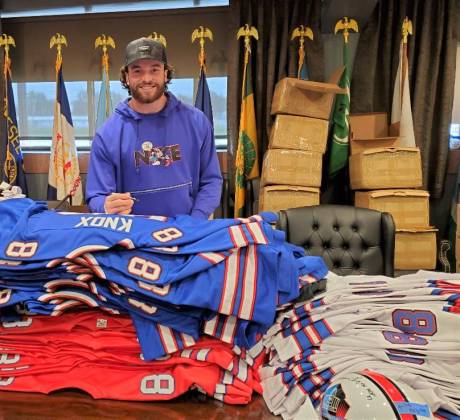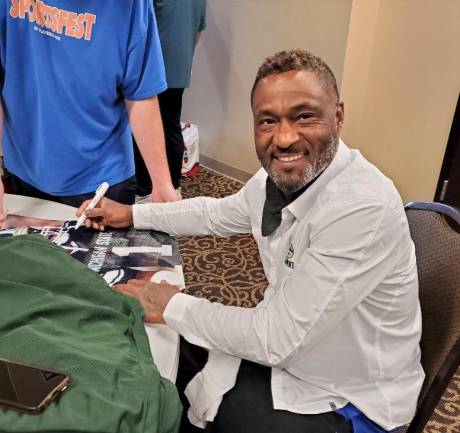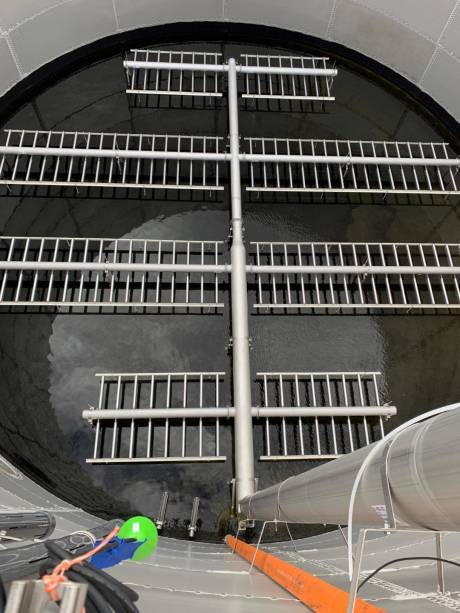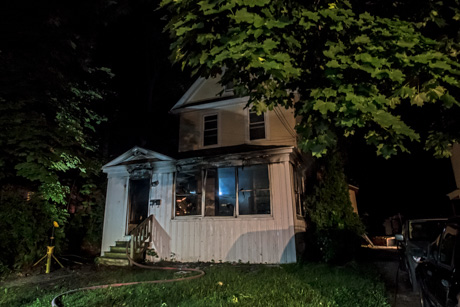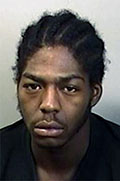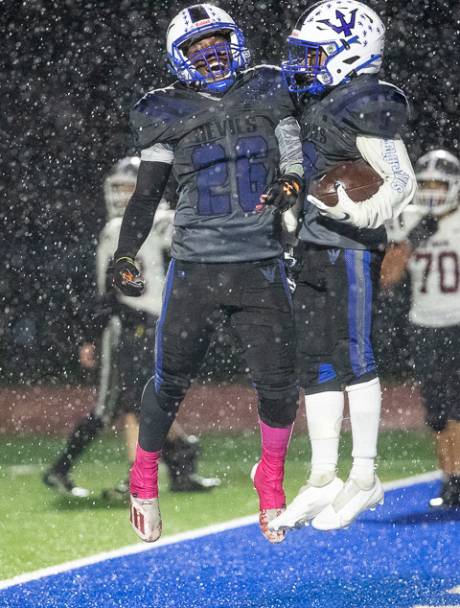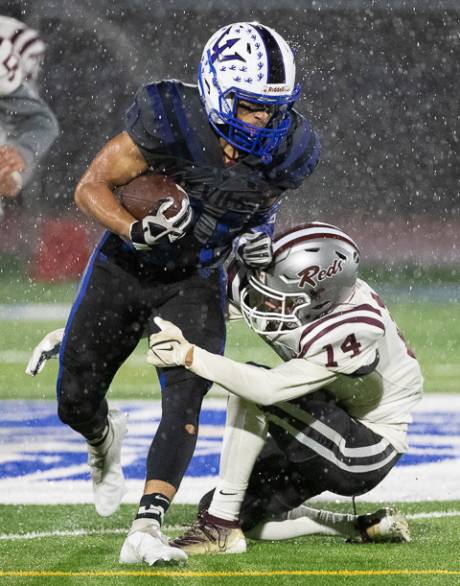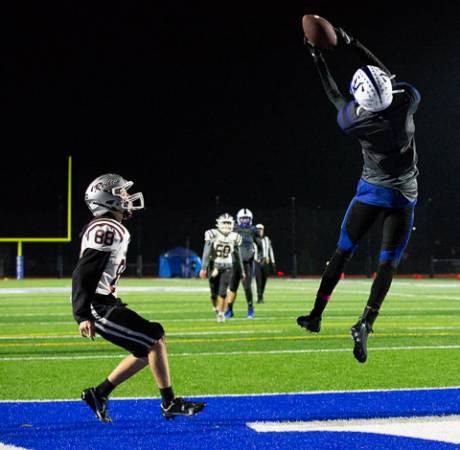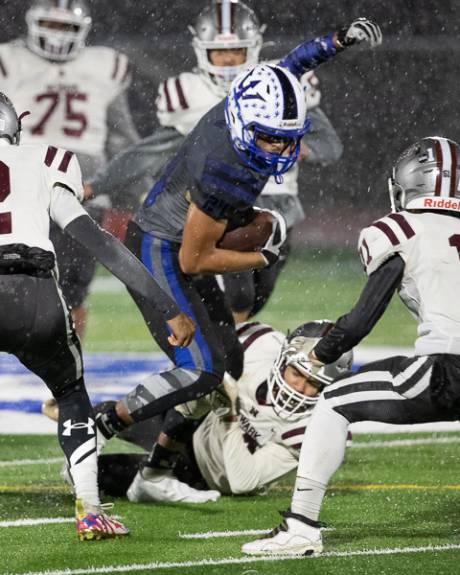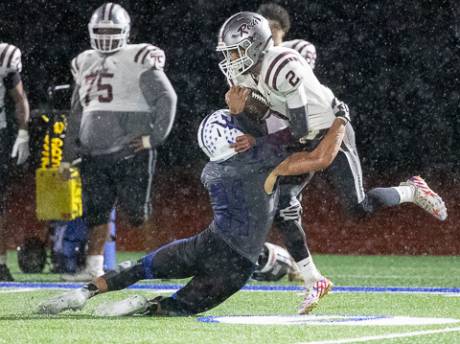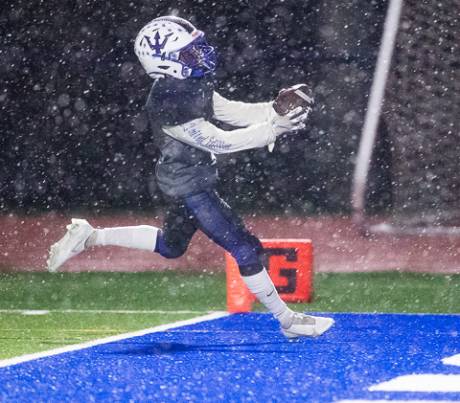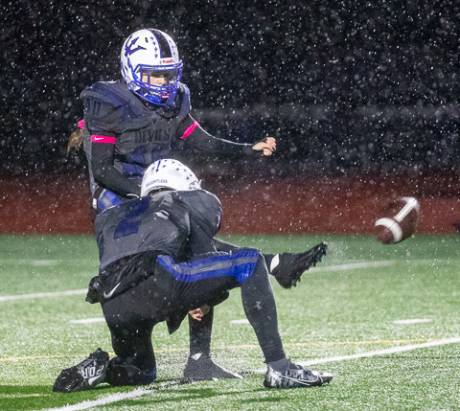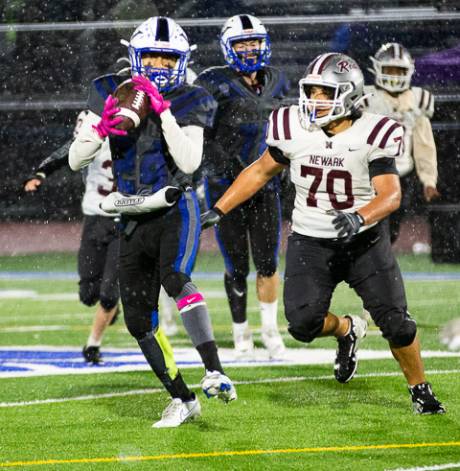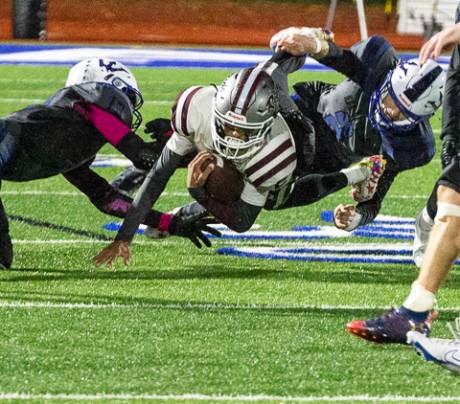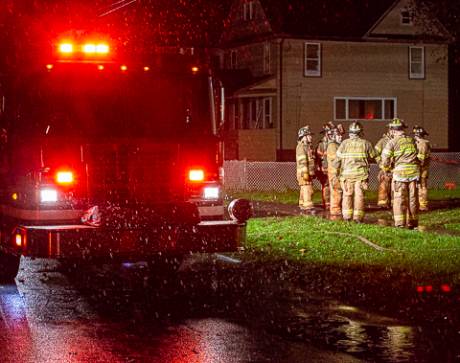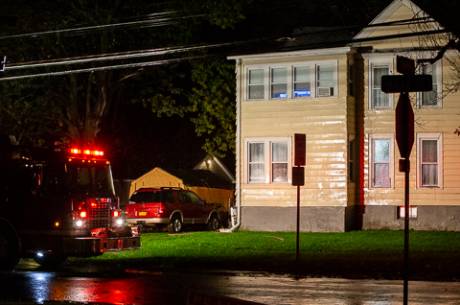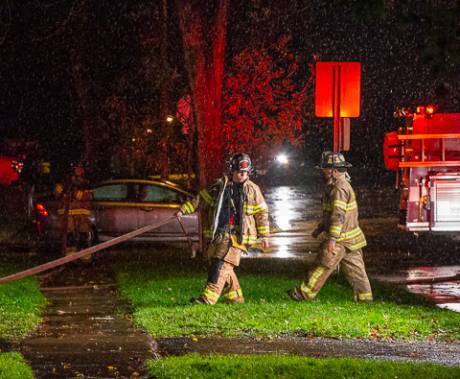Bialkowski: Four candidates running for three seats on Batavia City Council address everything from police funding to taxes
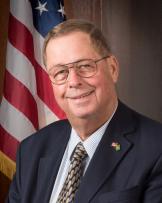
Newcomer Erica O’Donnell is vying to be the only Democrat in the group come 2022, as she and Republican incumbents Bob Bialkowski, Eugene Jankowski Jr. and Jeremy Karas run for three open seats. Organized alphabetically, Bob Bialkowski’s interview with the Batavian is first up to cover everything from city businesses and police funding to taxes and why he deserves a vote. Bialkowski is running for his second term and believes he knows how to be successful as a member of the City Council: Represent all of the people in the city of Batavia.
F. Robert “Bob” Bialkowski has served nine years on City Council, with stints from 2008 to 2011, was appointed to fill a vacancy for a year in 2017 and 2018 to present. A Batavia native, Bialkowski has served in the New York Army National Guard and the Coast Guard Auxiliary, which he presently serves as an aircraft commander. His business ventures include as the founder of Inland Aero Service, Inc. and Great Lakes Aviation, Inc. He has served on the Solid Waste and Recycling Committee, Neighborhood Improvement Committee, and the Zoning Board of Appeals. Bob and Madeline, his wife of 53 years, have one son, Robert.
Q: What do you feel is your responsibility as a councilman-at-large?
A: We represent all the citizens. It's sort of a check and balance function because you have council members that represent their communities; council-at-large represents the entire city.
Q: What is going right with Batavia?
A: Oh, I think it's going well. I mean, there's, you know, the bottom line, and we have an administration that's working pretty hard. The administration has been pretty streamlined because we've had retirements and everything else. People aren't jumping out of the woodwork to apply for jobs right now. But I think our administration is really, really going the extra mile, and I think it's all working as is demonstrated. We just got through the pandemic and we didn't bankrupt the city, and thanks to the city that we didn’t come to a grinding halt. We got through it pretty well when we had our council meetings, so we actually had a couple of meetings, but we had, basically, meetings continued on. So I think we have a pretty, pretty good government, pretty functional government, that's for sure. And you know, we don't always agree on everything and we don't always disagree on everything. But we hammered it out, got through it.
Q: What could use some improvement in the city?
A: Well, a lot of things could use improvement, but this starts out with earnings, like saying what could use some improvement on your home and office? We all need improvements. And you know, there’s our core staff for finances to infrastructure, where you have a lot of infrastructure issues, but a lot of them were on top of it, you know … we spent a lot of money on sidewalks every year and on-street repairs.
We're doing a lot of upgrading right now. I mean, we have a lot of things in the works for next year to be upgraded. And so those are all going on now, and a new police station’s in the works and that'll be happening long overdue by about 50 years. And you know, it's too bad that existing buildings are in such disrepair. But it is what it is, it’s something we can't go back in history. You can only learn from history. You can't go back and change it.
Q: What would be your top priority for 2022 if you're re-elected?
A: My top priorities are the same priorities I've had for the last nine years of being on councils: to represent the people, be a voice for the people. And one of the things that I've been quoted on, I've done it many, many times. Some people call, they have concerns, but that's a bigger concern. I ask them to please come and speak to our council, take five minutes out of your life. I respect the council and to make all this work make us aware of your feelings, your thoughts. And also the media will be there. The media will pick up on it and you will get action if you come and speak to the council. That's the best way to get action. I mean, as far as just calling your individual councilperson, they will resolve it. But the only reason I'm in this is to represent the members of the committee, and I have no personal gain by doing any of this.
Q: How do you feel that you personally will contribute to city operations?
A: I tell you, I'm quite outspoken as you know. So, you know, I get the message out there. I represent the people that are out there. I do my homework. I always research everything. I'm not afraid to make phone calls. I call state agencies. We recently had an issue come up here earlier in the year, and those people came and spoke at the council meeting and they expressed their concerns. It was about disc golf at Centennial Park. And after they spoke, I contacted the state Parks Commission and spoke to the state park managers for Western New York. I contacted each one individually … about the cost, hazards, everything else, and I did contact and could speak with the western New York Regional Parks Commissioner about the issue. And you know, for sure, for all our neighbors had concerns and we should know this isn't for Centennial Park. And I think it's kind of, we haven't heard it back since it was handed off to them to see what kind of potential there is to do it in another park. But this is typical, just the way I operate. I guess I just do the work involved.
Q: Why should you get a resident’s vote?
A: Why should I get a vote? They want somebody that's going to work hard for them. I don't care about party affiliation, political views or whatever. I work for the residents. It's that simple. If you want somebody that's going to work for you, I'm curious. I'm not in there for my own personal agenda. I'm not in there to promote walking on the Moon or anything like that. I'm just standing there to represent the community, the citizens of the city, I’m trying to improve our community. And I feel people really need representation.
Q: Do you feel that Batavia needs more housing?
A: You know, I'm going to answer that with one of the questions that I always return with. I've heard about homeless veterans. My question is where are they living now? I don't see homeless people walking the streets of Batavia, living under trees, or living in the parks. When we say well, you need more housing for the homeless, who do we need housing for? I mean, if I saw a whole bunch of people living in the city that don't have housing, or are there people that want better housing at a lower price? Are there people from other counties that want to move here or are being asked to move here? So I don't know. I mean, do we need more housing? I think housing is a commodity like anything else. I mean, I remember when I first got married, apartments were very scarce. I don't think there were like 10 apartments available in the community. Well, Madeline and I went out and looked at several apartments and found an apartment. But I hear this. We need more housing or we need housing for homeless people. I think that's not a simple yes or no answer.
Q: Does Batavia need more downtown businesses? And if so, what types would you like to see?
A: Well, I think the best thing government can do is stay out of the private sector. First of all, just because you're in a position as an official, that does not make you an expert in business or an expert on anything. You should just be there to represent the people. I think the one thing downtown businesses need is more of a streamlined process to remodel buildings. You know, they're stressed and have so many regulations and laws and zoning and code and building permits. It can take a year of planning. I think we need to do some streamlining there. But you know, I would like to see more retail and all that. But the reality is one small retail store downtown would only be one aisle in a big box store. Yeah. So there's a competition, and we knew that years ago and there is nothing we can do about this. American people have opportunities.
Q: I know a decision has already been made about a new police station, but how do you feel about it and the location?
A: Well, we put out a request for proposals for engineering contracts. A couple of things we have to look at. We didn't want to build in a flood zone because that would jump the cost substantially by a 25 to 35 percent increase in costs. So do we want to do that to the taxpayers? Absolutely not. Absolutely not. We don't want to spend any more taxpayers’ money than we have to. If we don't do something soon, we're going to have to move the police out of there. And I don't know where that would be, put them in a big tent or something? The building is no longer usable because it needs to be redone. And you know, if we start construction right now, it will be two years before they can move in any way. So there's the timeframe. We're looking at the location, it's a great downtown location. It's downtown, it's right up from the Main Street central Area. I mean, it has everything going for it. It's in a parking lot that the city already owns, so we don't have to procure land and there's a lot of flexibility involved with that. So yeah, I just think it's a win for the taxpayers, a win-win for everybody. As far as financially, we can afford it and we were able to say OK.
Q: Regarding the police department itself, do you feel that the police could use more, less, or status quo as far as funding for what they need to do?
A: Well, we are not defunding the police. I don't know of any single person who wants our police department defunded. Yeah. We're not going to play that game. We're not going to go down that road. At least I'm not. I don't think most of the council does. It's like any of our services. Sure, fire, police, DPW, they can always use more funding. But you know, we're getting by. We have strict limits on overtime. We have limits on the number of policemen. So yeah, they can always use more funding, but more funding means raising the taxes. So people want more police or more of DPW or more sidewalks or whatever. OK. How much do you want your taxes to go up? Oh, it'll be a different story. So we're doing the best we can.
Q: Do you think city taxes are fair for the amenities that city residents receive?
A: Oh, yes, absolutely. I mean, the city has more park area per population than almost all the cities where you have plenty of parks. We have a pretty darn decent infrastructure. We're putting in new water lines, we're putting in handicapped, accessible sidewalks, which is very important to me, and it's up to sustainability and walkability where our streets are. Most of our streets are in excellent shape. There are sidewalks that are on the schedule to be built or making it to some streets. But it's expensive infrastructure, very expensive today, as I’ve pointed this out to many people, to replace. One block costs $350 and that's for one sidewalk block. Like, that's why we don't replace individual blocks anymore. We do it all by contract. We just put out a contract to replace 2000 feet of sidewalks at a time or whatever it takes. We have some aging trees. We have trees that should have never been planted in the city that happened. So that means now we have trees that are dead and they have to be cut down. So to cut one tree down in front of a home cost about $3,700. So, big money. Everything is big money and there's no way around it. So, you know, our DPW and our administration are doing the best they can to keep everything in check and keep costs down.
Q: Do you feel that you said what you wanted to say as far as running for council?
A: You know, I just want to add that one of the things I think I'd like to see is for the citizens to communicate more freely, to talk to their neighbors … nobody talks to each other. Yeah, the first person people call is the police. That guy who walked across my front lawn, and they say ‘I don't want to do it.’ Sometimes you just have to be able to communicate. People are reluctant to do it, to me, because, you know, we still have some communication problems.
And another one is a consideration. Don't park your car over the sidewalk so we’re walking down the street. You should go out into the street. Number one, it's against the law. Number two, you are liable when you do that. And number three, it’s just darn rude to do to your neighbors, your friends. That's part of living in the city. Part of living in the city is getting along.
You know, take care of your property to make sure your home is maintained the best you can. So I think it's very important.
And you know, there are those people out there that are campaigning and promising to do everything in the world, so people need to remember it’s City Council; there's nine of us. Yeah, any individual is only one person on council. A lot of people don't even understand how local government works. You have to get it on an agenda, bring it to a conference meeting and hammer it out in public. Oh, we don't discourage anyone from speaking at a council meeting. Sign up to speak, and a lot of times it really does get results. I always encourage people to come to a meeting and speak and give some examples. And then, after all that, for the vetting process, you know, it goes to our business meeting, and then it gets voted out. No single person can really do anything. Government has a very good reason to move very slowly because God help us if an individual can just make a request, that can be dangerous and reckless.

